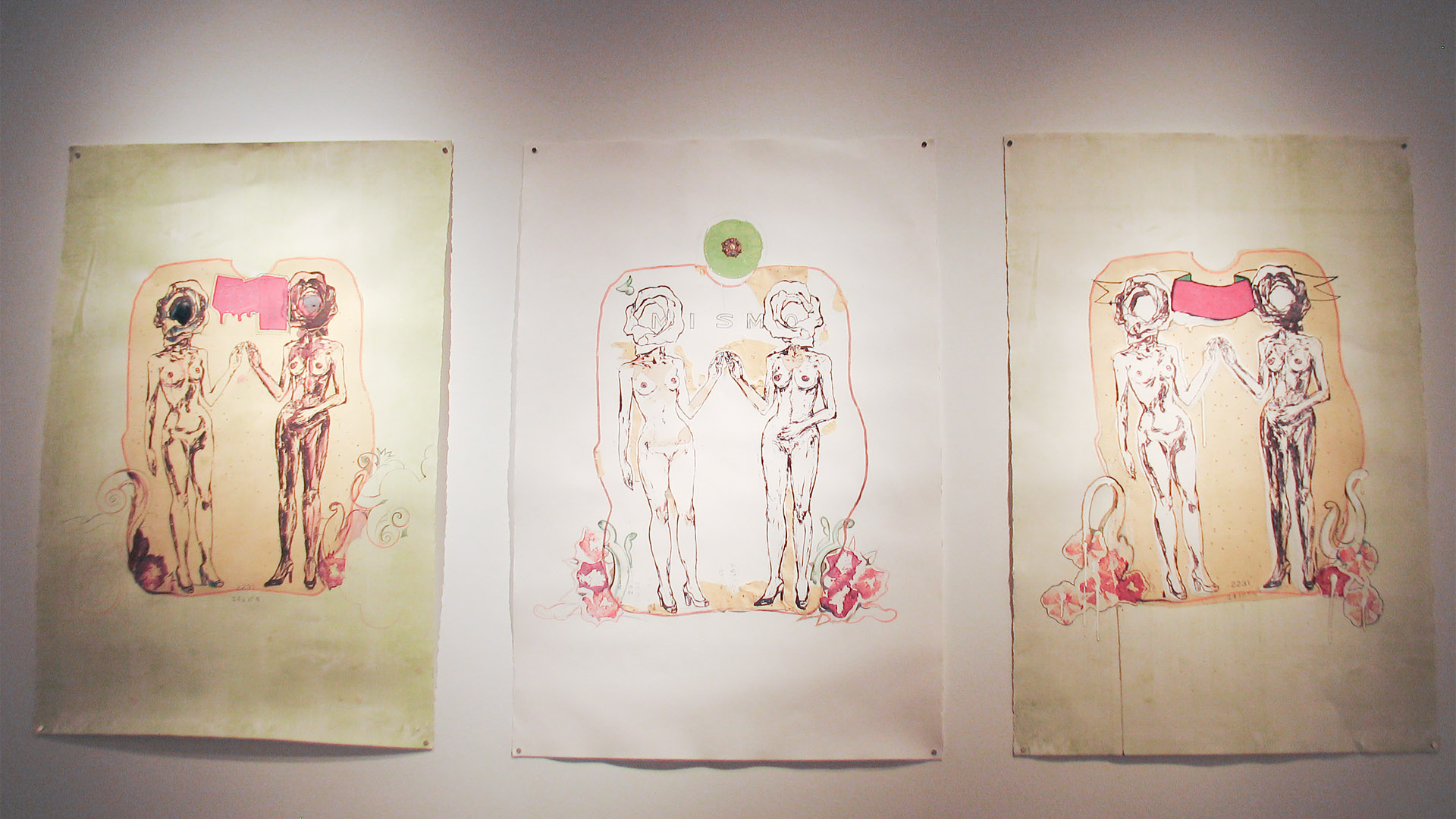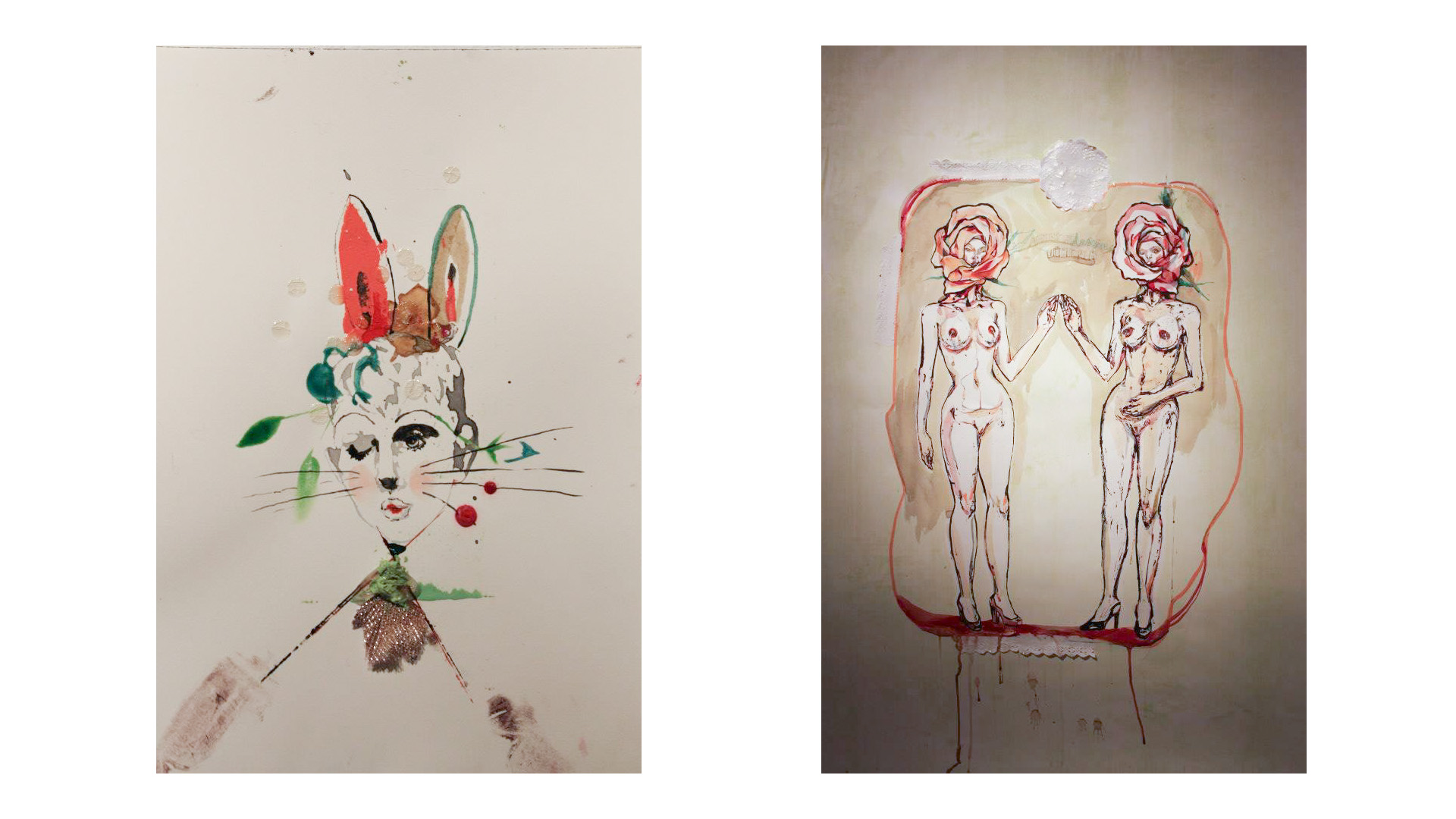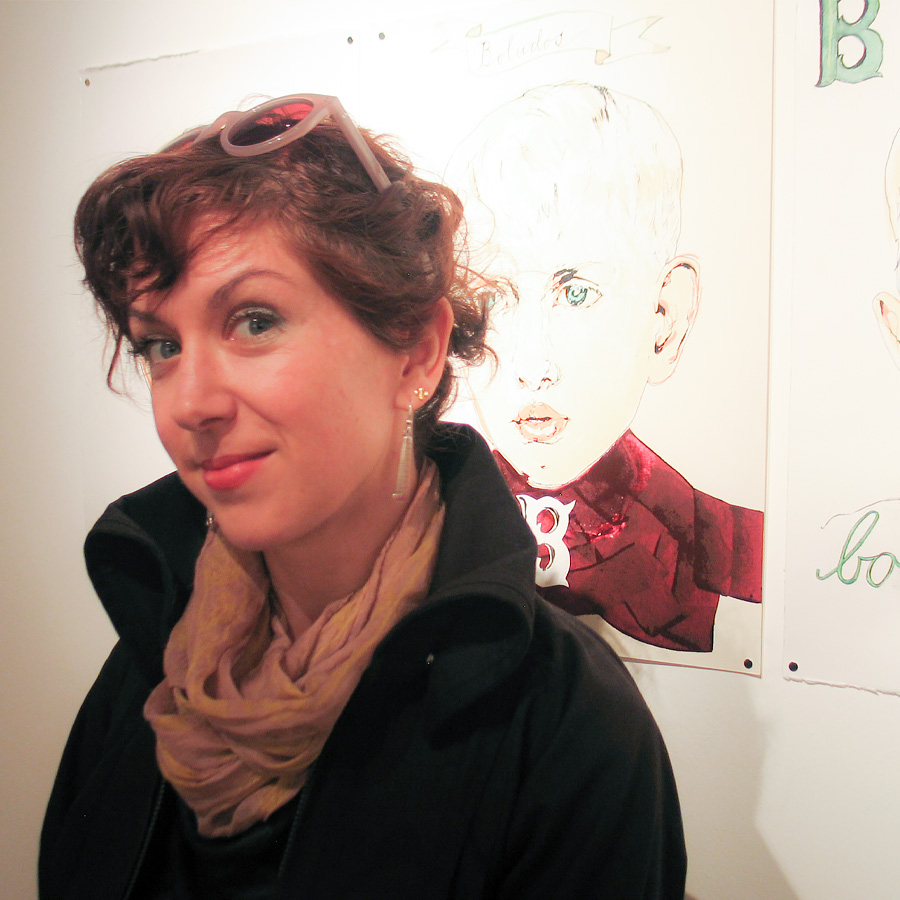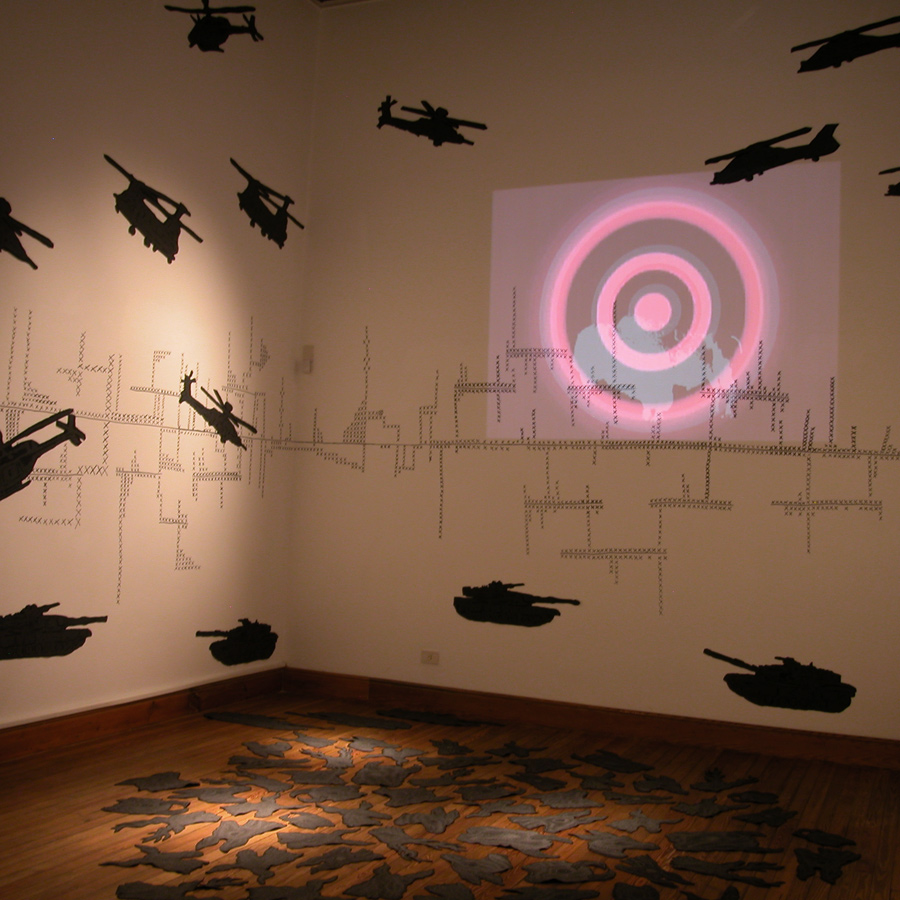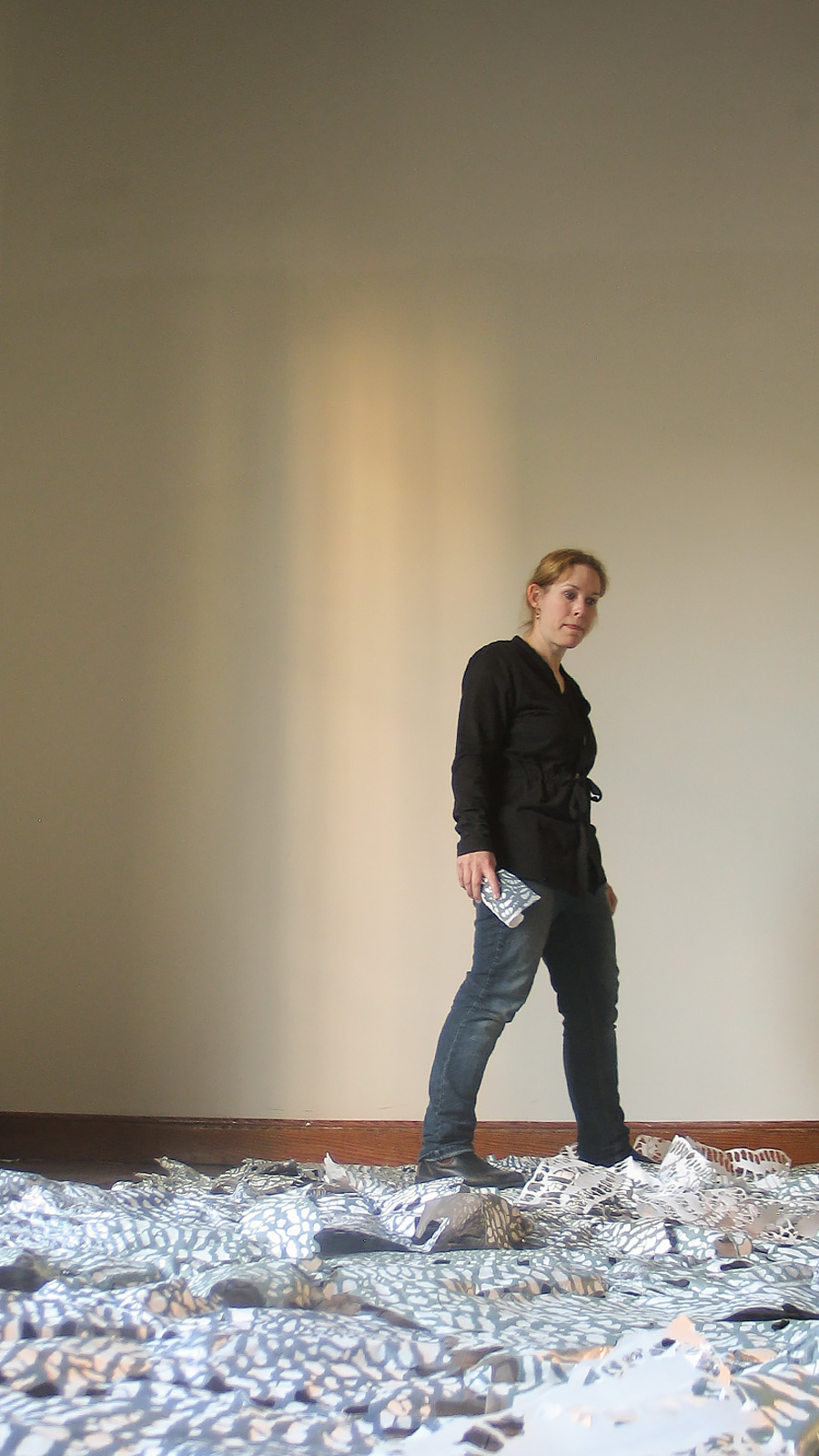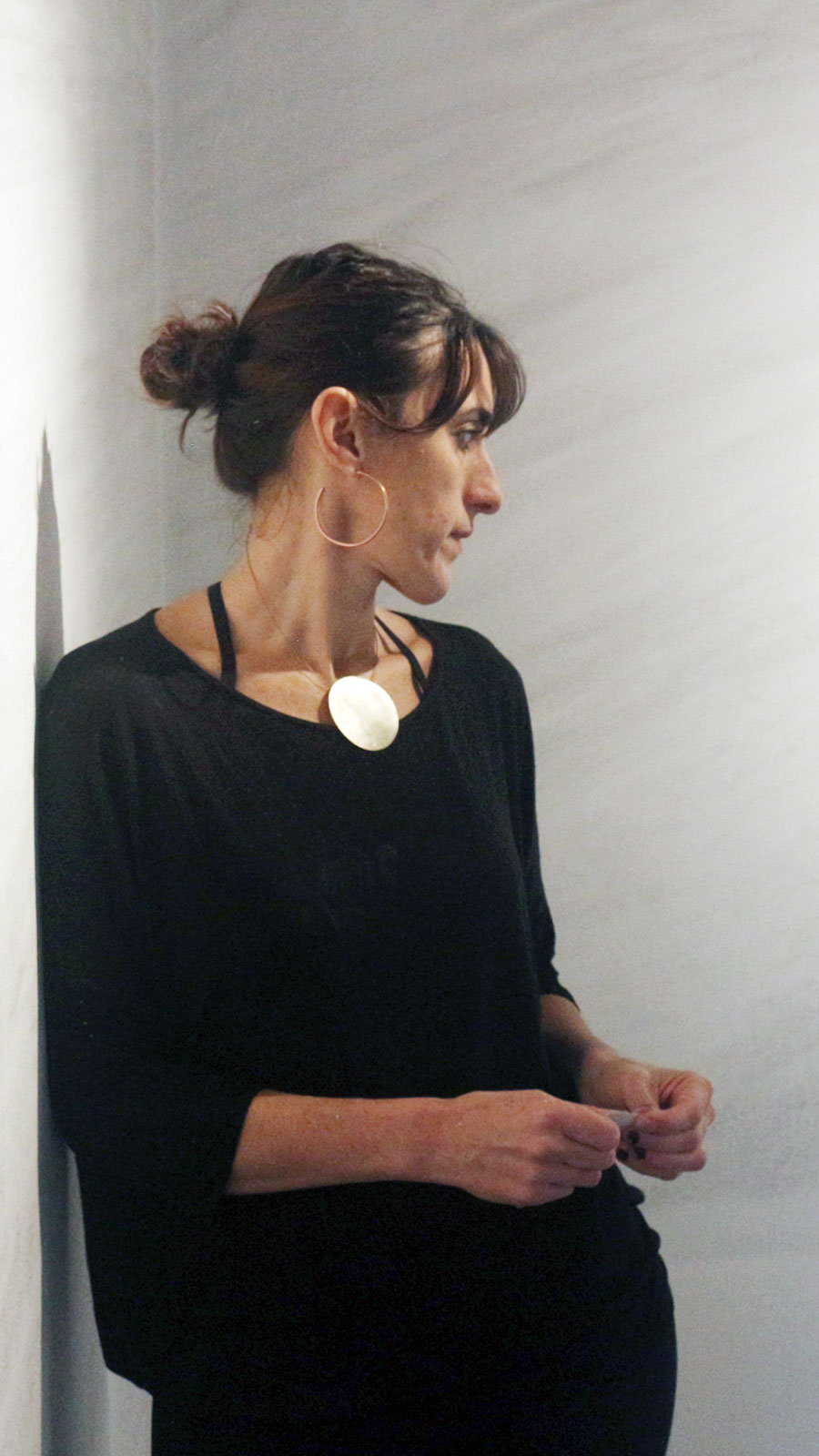Activities
Exhibitions
Bed of roses
Peregrine Honig
10.10.12 30.10.12
On October 10th, Bed of roses (Twin Ghost), an exhibition produced by the North American artist Peregrine Honig as a result of her production within the ´acePIRAR, International Program of Artistic Residences was exhibited in the ‘ace house.
The exhibition was accompanied by the visit of the North American musicians Mark Southerland and Christine Brebes and the Argentines Andrés Beeusaert and Quique Ferrari who performed live Jazz and other musical genres.
ABOUT ROSES BED [The Ghost Twin] (By Peregrine Honig)
The image of a child / pubescent is the center of this new series of works. It started in my hometown, Kansas City in the State of Missouri, a city ranked eighth in the US in terms of murder and wrongful death. This drawing has traveled with me and has been culturally transformed into Buenos Aires.
The boy / pubescent is shy, fragile and effeminate in a negotiable masculinity. Here in Argentina it is referred as “puto” a word that in common language could be a middle ground between fagot and idiot (everyone insists that everything depends on the context in which the word is said). I portray him and his double / twin – a ghost of himself, a memory of the past and a manifestation of the present itself. In the portrait, he is both American and Argentine. He is a boy who will never become a man.
In the year 2000, a case was reported of two young women who had lost their parents during the Argentine dictatorship. They were 21 and 22 years old, and they were both called Victoria. They emerged as twins from the same past; they existed within a past and a present, shortening time and filling the moments of a forgotten memory. They are the resurrected disappeared, but addicted to the history of an absent past.
I walk everyday past the plaster statues of the Virgin Mary and Jesus, located inside a glass urn in the always congested Train Station in Retiro. Those two statues represent and provide a moment of rest to all of those who stop to look at them. People usually observe them with a fixed gaze and have a feeling of hope, marking their fingerprints on the glass before passing on their way through the pinwheel. Their tracks leave ghostly memories of the presence of people who were once there. For me, they are momentary reminders of the disappeared, who are still walking in Argentina, a country where the law of legal abortion was recently voted. We are all looking for a twin from the past. And in these moments of subversive identity, of the search to find the other half, that my work exists.
